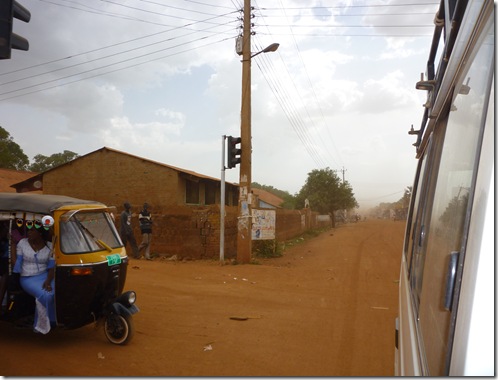
In Wau. Western Bahr el Ghazal. And they actually function. Even Juba isn’t this advanced!
(Photo Credit: Karuna Herrmann)
Probably the best economics blog (previously) in South Sudan

In Wau. Western Bahr el Ghazal. And they actually function. Even Juba isn’t this advanced!
(Photo Credit: Karuna Herrmann)
We’ve set up each of our randomized control trials with a team of one to two full time Liberian qualitative researchers. Over two years we’ve discovered people with an incredible talent for observing, talking, confiding, and (increasingly) analysis. They get reams of information and insight unavailable to the foreigner. The data are voluminous. If the interventions work, we have a solid idea why. Another benefit: new questions and hypotheses to test quantitatively—some more interesting than the originals. And it’s a poor but respectable substitute for the dwindling time I have to spend in the field. Every research project should build this in.
Chris Blattman on mixing qual and quant methods.
Posting will be continue to be slow this week due to malaria and government budget planning meetings. Mainly due to the planning meetings. I also have some tough malaria breed which Coartem won’t kill, so I’m now on to Quinine.
Fun Quinine fact - it makes your saliva taste like tonic water.
Next week is also my last in Southern Sudan (for now). Reflections to come once I have had time to catch my breath. I might need a new sub-title for the blog. Suggestions welcome.
Also to come - notes on adventures in Kenya the week after next, when I’ll be learning how to do a randomised controlled trial.
Watch this space.

The finance minister in Khartoum state Mohamed Yousif said that he established a taskforce to examine the causes of rising prices in 37 items which concluded that the 15% inflation rate, low productivity and high demand led to this situation.
So apparently rising prices (inflation) are causing rising prices. Erm nice one…
Sudan Tribune
Peter Martell has a new website. He has been reporting from Southern Sudan for the BBC (amongst others) for a while now. He also rides a Senke, which clearly makes him a very cool dude. Self-recommending really.
According to some sort of online 2010 ranking for best economics blogs. Mental. Obviously I can’t vouch for the rigour or quality of the selection process.
1. Some pessimism from Becker and Posner on Africa’s growth prospects
2. Eritrea: Africa’s North Korea
3. Gettin’ by: Rural teaching
4. Great charities are born not made
At least a part of my open-border enthusiasm is personal. My grandmother fled Nazi Germany as a teenager just before the outbreak of World War II. This commemorative plaque sits in the House of Commons.
On Wednesday more history was made as the British Supreme Court passed a ruling allowing gay and lesbian asylum seekers to remain in the UK if they fear persecution in their home country. The ruling was welcomed by the Conservative Party home secretary. Yes that Conservative Party. The right-wing, socially conservative one.
Britain, you rock.
Lawrence Haddad at IDS notes that all of the recent big cash transfer successes have been led by governments rather than donors.
There have been too many donor driven pilot schemes in sub-Saharan Africa that have not taken off due to lack of political support. The successes cited in the article have been home grown: Mexico, Brazil, South Africa. What donors can do best is to be nimble, nurturing and flexible enough to support home grown political energy for cash transfers when and where it exists. This is what donor support for cash transfers should prioritize and it is what aid more generally should seek to do.
I would disagree for 3 reasons.
-----
On a side note - Haddad references a Sunday Times article - which he can’t link to because of the new paywall. Anyone want to bet against the Times paywall experiment failing?
Chronicling, like acquisition, is a failed defense against impermanence. We can’t take our stuff with us when we go, but we can’t even take our experiences with us into the next moment, except by recording them, by talking about them. Gossip can be understood through these texts as perhaps a function of longing rather than a malicious impulse; if we don’t tell someone about what happened or where we’ve been, that experience may just vanish. Telling people what happened is the acquisitive impulse applied to experience. Buying too much stuff is the same thing as telling secrets. Indiscretion is a kind of longing.
Helena Fitzgerald, via Marginal Revolution
recognition-or more specifically the subsequent eligibility for foreign assistance which would almost certainly follow-has significant potential to upset Somaliland's success.
…
in the absence of foreign aid, Somaliland's government was forced to negotiate with a wide array of actors in order to develop a sufficient tax base, and it was as a result of these negotiations that the country developed highly representative institutionsYou can probably guess what my solution would be. Don’t give aid to the Government of Somaliland. Give it to the people.
